
Known for her true crime writing, Caitlin Rother adds crime fiction to her skill set with NAKED ADDICTION
As the New York Times bestselling author of fiction and nonfiction books, I thought that readers might be interested to hear how the writing process differs between my two main genres, at least for me, and how I go about choosing the cases I feature in my books.
So far, I’ve written or co-authored 10 books, including eight that are narrative non-fiction crime titles, and I’m working on #11 and #12. My latest title is I’ll Take Care of You and my upcoming book is titled, Then No One Can Have Her. Some of my books are true crime, and some, like Twisted Triangle and Deadly Devotion, are a mix of memoir and crime. Naked Addiction, which I just released in a revised and updated edition–and you can find right here on WildBlue Press, is my first and only mystery thriller.
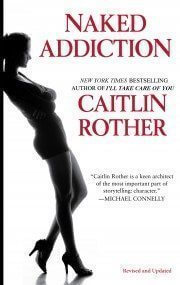
NAKED ADDICTION is a great WildBlue Press crime fiction mystery by Caitlin Rother
Commercial fiction and nonfiction may be geared more toward entertainment purposes than their literary counterparts, but I try to incorporate some deeper messages into the stories I choose to tell. I’ve heard the opinion that true crime writers are “predators,” preying on the tragedy of families or glorifying violence, but those are certainly not my intentions. I believe I have a higher calling to educate readers and to help them learn how to protect themselves.
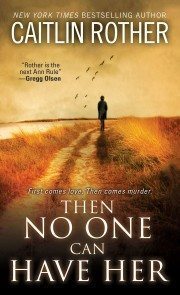
Caitlin Rother’s next true crime, Then No One Can Have Her, is due out in October
I choose the true crime stories that let me explore the psychological aspects of the human condition and illustrate the extremely important issues of life and death, and, in some cases, the struggle to survive, that we all share. Violent crimes can cause feelings ranging from betrayal and loss to utter devastation, not just to the victim’s family but to the criminal defendant’s as well. I try to touch on these same psychological issues in my fiction, too. In Naked Addiction, for example, the various characters use their own substance of choice or something external to themselves as coping mechanisms to deal with their various personal issues such as mental illness, addiction or loneliness. To me, all of this is just as meaningful and relevant to society, if not more so, than other genres that tend to get more respect and critical acclaim from reviewers.
Some of my former newspaper colleagues have told me they don’t usually read true crime, as if they didn’t think it was worth their time. I also recently met a very nice and highly acclaimed literary fiction writer, who told me, “I love true crime!” I got the feeling that this was his dirty little secret, just as I do when one of my former newspaper colleagues tell me they liked one of my books, almost as if it were a big surprise. The irony is that these books do sell, so somebody must be reading them.
With both kinds of writing, although more for fiction, I find myself in “the zone” if I’m having a good day. By the same token, it is much harder to write fiction in spurts because I lose my train of thought and I can forget where I’m going with the plot or a character’s motivation. But both forms of writing require a lot of thinking before I can even sit down at the computer. Deciding how to tell a story – what parts in what order – is always challenging.
Nonfiction can be more challenging because it requires so much time-consuming research before I can determine the best way to present the information. It helps that I know where the story ends. With fiction, however, I often seem to end up somewhere different than I’d planned – regardless of any outline I might draft – because the characters often take over and go in their own directions. Some of them can be pretty headstrong. But that’s how I get my twists and turns. Most of the twists aren’t planned; they’re as much a surprise to me as they are, hopefully, to the reader.
Although I have published more true crime books than fiction, fiction was my first passion, and that was how I got started writing books in the first place. (It took me 17 years of writing and rewriting to get Naked Addiction published.) Growing up as an only child, I told myself stories, talked to myself in the mirror as different characters, and read lots of fiction and comic books to keep myself amused. Later, I added movies into the mix. I have always loved stories and storytelling.
I started writing fiction before I became a journalist, but it became more important about two or three years into my newspaper career, because it provided a creative and therapeutic outlet by providing some relief from the daily grind of analytical thinking and fact-finding. I thought that after writing as many as four stories in a day I wouldn’t have the time or energy to write at night or on weekends. But I was wrong. Writing fiction energized me, kept me up late at night, as the plot for what ultimately became Naked Addiction unfolded on my notepad. It was like a drug. From there, I learned to write narrative nonfiction, which reads like a novel, but is completely factual. After writing lengthy narratives for the newspaper, books were the natural next step.
As a result, the two writing forms have become symbiotic, i.e. my fiction writing has helped improve my nonfiction storytelling and my knowledge about homicide investigations has helped inform my fiction. I’ve been working on a sequel to Naked Addiction in between all my other projects, and am still trying to make it the best it can be.
But writing true crime stories comes first, because so far that’s been a better seller for me, although I’m still hoping that some of my loyal TC fans will give Naked Addiction a try. I find it fulfilling to explore a true crime case in depth, to really probe the players about their investigative processes and strategies for trial, to go deep into the family backgrounds of both the victims and the defendant, and best of all, to learn about the evidence in such detail – usually in more detail than the jury ever knew.
Working on a deadline requires me to be extremely organized, planning the sequence of my interviews based on who or who may not want to talk to me and what I need to know before I can interview the next person. Sometimes you only get one shot at someone, and even if they say they’ll talk to you again, they may change their mind. That’s why documents and investigative reports are so important for me. My home office, my dining room table, and unfortunately other nooks and crannies throughout my house become the repository for boxes, files, and stacks of paper. Let’s just say I’m very thorough.
When I’m finished, there’s nothing quite like the feeling of holding one of my new books, the ones my publishers send me before they even arrive in the bookstores. And hearing from readers who were touched, moved or inspired by one of these books is the icing on the cake. That helps me going. If you guys keep reading and I will keep writing!
In my other jobs, I coach aspiring authors to write, research and promote their books (in person as well by phone and email), and I also teach narrative non-fiction and digital journalism at the University of California, San Diego Extension and San Diego Writers, Ink. This way I can pass on what I’ve learned to others. If any of you reading this are interested in coaching help to write your first book, please contact me at crother@flash.net.
And if you are looking for some intensive inspiration, tips, networking and advice from authors who have jumped through the hoops of publishing, I hope you will attend my Beach House Writing Salon II in San Diego on April 18, a day of writing workshops, one-on-one critiques, a panel discussion, and a cocktail party on the beach with live music. The faculty staff includes me, our esteemed WBP publisher, Steve Jackson, and two other established authors, Laurel Corona and Chip Jacobs. For full details, please go to beachhousewritingsalon.blogspot.com, check the WBP blog post on the event, or contact me at the email address above.
If you’re interested in learning more my books, you can check out them out here on WBP, http://dev.wildbluepress.com for those of you reading this blog on social media, or my personal web site, http://caitlinrother.com.
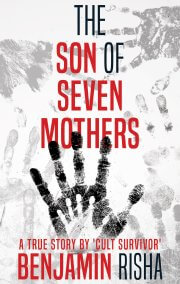

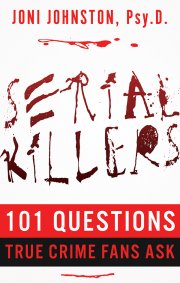
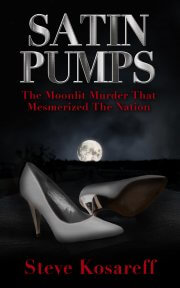
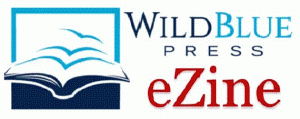 Join our email list
Join our email list
Leave a Reply